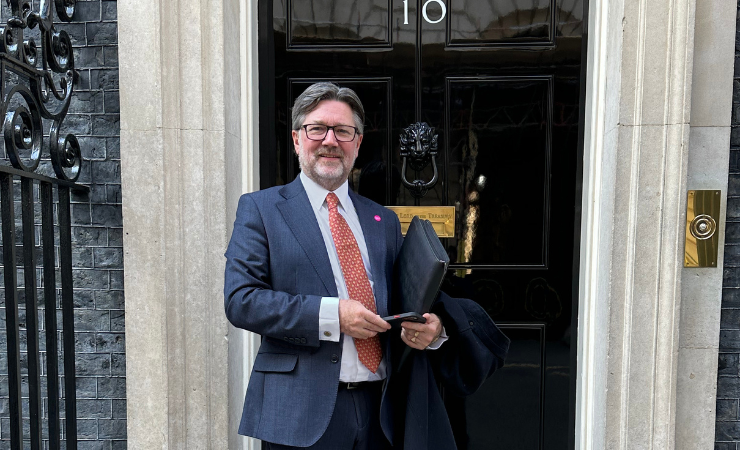As part of its ongoing efforts to promote the print sector, a representative of the Independent Printing Industries Association (IPIA) met with special advisors to Prime Minister Rishi Sunak at 10 Downing Street to put the case for the industry as a significant part of the UK’s manufacturing sector.
In what may be a first for direct representation of the industry to the most senior levels of UK government, IPIA Chair Charles Rogers met with the special advisors to the Prime Minister, and Puneet Gupta of Glasgow-based paper merchant PG Paper Company. Mr Rogers presented information and statistics confirming the UK as the world’s sixth largest print producer, and print as a sector responsible for nearly 8% of the country’s manufacturing output, as well as being a key part of the social, cultural and economic fabric of the country.
The opportunity was also taken to set out the challenges facing the industry and to make the case for it to be recognised as an ‘industry of strategic value’, a phrase used in government to describe industries that play a fundamental role in the economic health and competitiveness of the nation.
‘The opportunity to participate in this meeting presented itself at short notice, and I was honoured to represent the IPIA on behalf of print and paper at No 10 Downing Street,’ said Mr Rogers. He continued, ‘Meeting with special advisors, who report to the PM, was a critical and rare opportunity to push our agenda for all those involved with print and paper in the UK.’
Mr Rogers told Digital Printer that the industry messages were received positively and said he is hopeful that the dialogue will continue. The IPIA is now gathering representations from other leading associations belonging to the Graphic and Print Media Alliance (GPMA), which includes the BPIF and Picon. It will work in partnership with them to further strengthen the advocacy efforts.
Mr Gupta commented, ‘In today’s fast-paced digital world, the paper and print industry faces a range of challenges that require innovation, collaboration, and adaptability to overcome – it’s important to have open and honest conversations about navigating these. By bringing together stakeholders from various sectors of the industry we look to develop strategies to overcome the challenges and support growth.’
A number of structural and strategic support requests were made on behalf of the industry as part of the presentation and brief supporting documents. These included the inclusion of print businesses in the Energy Intensive Industries Exemption Scheme, expansion of the existing capital allowances scheme, the Implementation of post-Brexit policies that prohibit imports of paper products that are below UK environmental aspirations or standards and a special classification placed on print and paper exports to Ireland to mitigate a significant loss of competitiveness with European print businesses.


